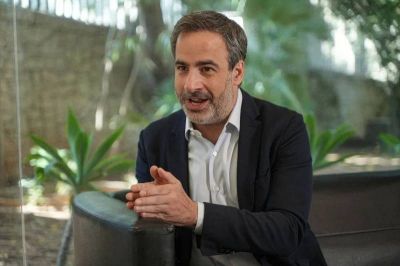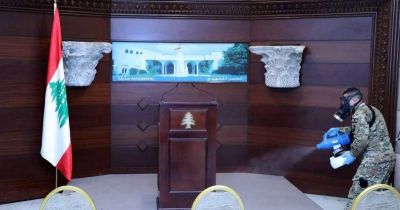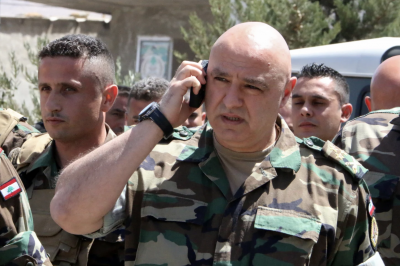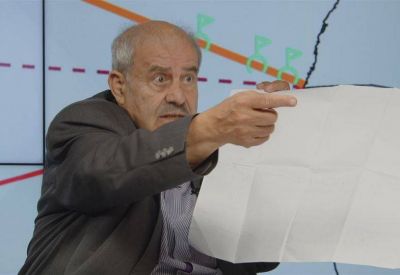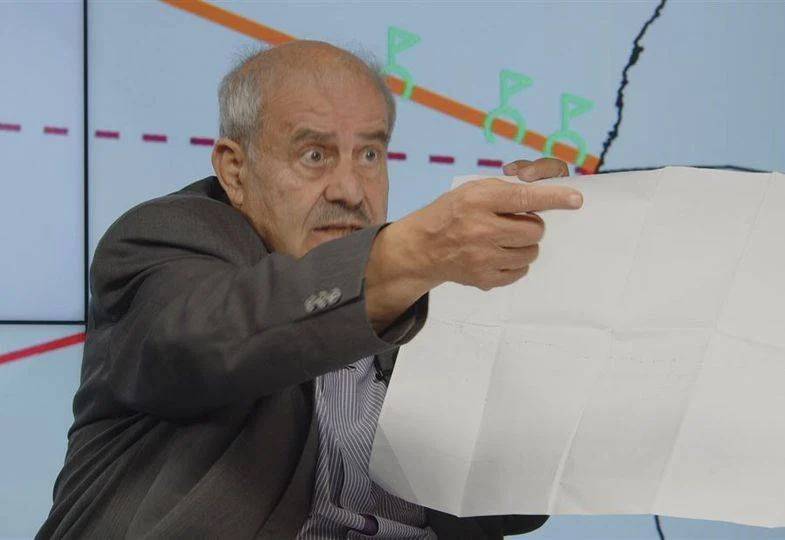
Historian and professor Issam Khalifeh, in a screenshot of a recent interview with news site Spot Shot.
It was a new name that a handful of MPs chose to support on Monday during a fourth parliamentary session which failed, once again, to elect a successor to President Michel Aoun. Ten MPs, mostly from the Forces of Change bloc, voted for Issam Khalifeh, an academic, researcher and trade unionist.
An advocate for secularizing the state, society and education system, Khalifeh was born in 1946 in Hadtoun, a small village near Batroun. Others know him for his outspokenness and involvement in student life at the Lebanese University, where he was president of the student union in the late 1960s.
However, Khalifeh’s background has not been enough to make him a serious candidate for president, and he hadn’t previously announced he was in the running. But Monday night, a few hours after the session, he said in a television interview that he would “answer the call of duty,” thanking the MPs who had voted for him.
Speaking earlier on Monday to L’Orient-Le Jour, Kalifeh preferred not to speculate about the votes he received. “I understand this position, which was not about me personally. These MPs wanted to put forward ideas, the student struggle and the work on land and sea borders,” he said.
In recent years, Khalifeh has been outspoken on the delimitation of the Lebanese-Israeli maritime border, as an advocate of maximalist Line 29, which would have added 1,430 square kilometers to Lebanon’s waters and would partially encompass the Karish gas field. The finalized agreement, reached earlier this month, instead largely follows Line 23, which is further north. Khalifeh has accused Lebanon’s politicians of having ceded sovereignty of the country and writing off a windfall of several billion dollars.
“Yesterday, the MPs did not put in the ballot box the name of Issam Khalifeh for the sake of Issam Khalifeh, but to vote for Line 29,” said his former colleague at LU, who requested anonymity for professional reasons.
“He represents the Oct. 17 uprising, in everything that it entails. He fought for secularism, and independence, and has always refused the interference of political parties and the tug-of-war between the March 8 and March 14 camps within the Lebanese University,” said Chouf MP Halimé El Kaakour, his former colleague at LU, who gave him her vote. “Today, we do not want someone gray, but rather a person with clear ideas who resembles us,” said the MP.
Khalifeh had the support of other Forces of Change MPs, such as Michel Douaihy (Zgharta), Cynthia Zarazir (Beirut I) and Firas Hamdan (Marjayoun-Hasbaya), as well as Saida MP Osama Saad, who praised him in a written statement Monday. “The influential figures who defend sectarianism do not want someone like him, and it is an honor for him,” Saad wrote.
Student activist
Khalifeh’s character is rooted in is rural background, political specialist Karim Emile Bitar told L’Orient-Le Jour.
Although he has kept his distance from the Lebanese political arena, Khalifeh has long been an activist. Shortly after he enrolled at LU in the late 1960s, he and a group of students started what they called the Awakening Movement (Harakat al-Waii), a social and political movement that today could be described as centrist. “The left perceived us as an intelligent right, and the right thought we were leading students to the left,” Khalifeh told L’Orient-Le Jour in 2017.
Later during the Civil War years, Khalifeh spoke against “all militias,” according to Bitar, adding that he became a figurehead of the 1970s student movement. When the war broke out in 1975, the Awakening Movement opposed the fighting and criticized both the left, which had allied itself with the Palestinians and Syrians, and right-wing Christian parties, which had armed themselves.
Because of his political views, Khalifeh was forced to leave Lebanon and moved to France in 1977 where he enrolled at the Sorbonne to work on a thesis in history.
When he returned home in 1980, LU administrators at first refused to hire him.“He fought to obtain the title of professor,” one former colleague said on condition of anonymity. Decades later, in 2020, Khalifeh was sued for defamation by LU President Fouad Ayoub, who has been accused of abusing his position and falsifying diplomas.
“Voting for him for president yesterday is important, as a symbol of LU [which is now] is in the process of collapsing,” said Bitar.
This article was originally published in French in L'Orient-Le Jour. Translation by Joelle El Khoury.
